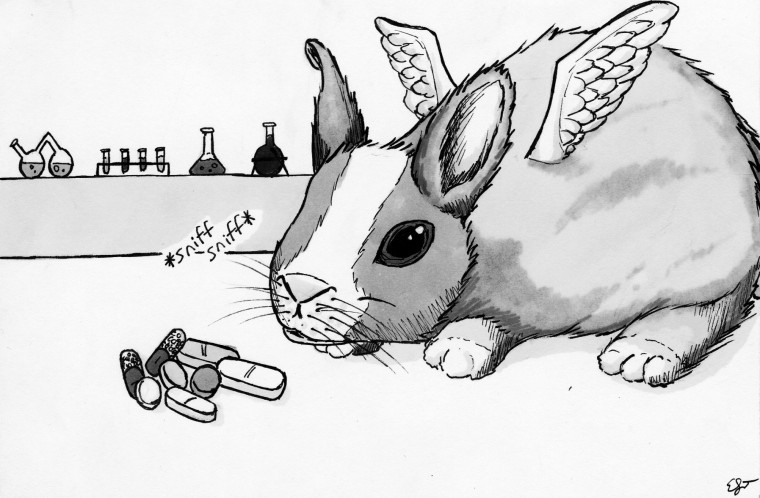Testing on animals is unreliable and unethical
April 6, 2011
When there is a debate about whether testing drugs on animals is ethical, one of the main arguments proponents use is that it has helped alleviate the suffering of people through the medical advances made in testing labs.
That is not the case at all. Not only is animal experimentation morally wrong, but many of its failures have actually negatively affected people.
One example is the failure of animal testing with the drug thalidomide that happened in the 1960s. According to the organization “Animal Friends Croatia,” scientists had created thalidomide to help stop morning sickness for pregnant women.
Even though it was tested on many species of animals before it could be purchased, “it caused an estimated 10,000 birth defects and thousands of fetal deaths worldwide.” Many of the babies suffered from phocomelia, a disease that does not allow their limbs to develop correctly.
According to research done by Dr. John J. Pippin and Dr. Kristie Stoick, “adverse drug reactions are responsible for 2.2 million hospitalizations and 106,000 deaths annually.”
They concluded that many of these instances could have been eliminated with more human-specific drug testing.
Of course, I am not advocating testing on humans. I am merely pointing out the obvious risks involved when relying on animal experimentation.
Putting aside the fact that testing chemicals on an animal with a different body chemistry is an inherently flawed system, it is also morally wrong.
While you can argue all you want about the potential for medical advances, it doesn’t stop there. How can one defend testing cosmetics and household products for toxicity and safety on animals?
These tests do not cure any sort of human illness; they just sacrifice helpless animals for the sake of human convenience.
Instead of animal testing, there should be alternatives.
For example, CeeTox, a Michigan company, created an animal-friendly way to test toxicity by using in vitro toxicity screening to test consumer products. That allowed labs to test toxicity of chemicals using technology rather than animals.
Obviously, as humans, we are primarily concerned with our own well-being, but how far should we go in our efforts?
Recent advances in medicine are great, but we need to explore other methods by which they could be made. With the constant advances in technology, it seems pretty archaic to still be sticking needles into helpless animals to see what happens.
As Sir Paul McCartney said in an interview with People for the Ethical Treatment of Animals (PETA), “Sometimes people place too much faith in people in white lab coats and assume that there’s a need for animal testing just because it has been going on for so long. I believe this to be a holdover from the dark age of medical science, and more enlightened scientists nowadays believe they can get more reliable results with more modern methods.”
It goes without saying that animal rights can only be defended by sensible, caring people. Organizations like PETA and conscientious celebrities can only do so much to protest the unnecessary suffering of innocent creatures.
The oversight on scientists engaged in animal testing is imperfect. Some animals are starved, burned, blinded and go through painful procedures without anaesthetics.
People need to contact their legislative representatives and urge them to put restrictions in place for animal testing.
Eliminating animal cruelty will not put an end to medical advances. It will only force us to find other, more ethical ways of achieving them.







